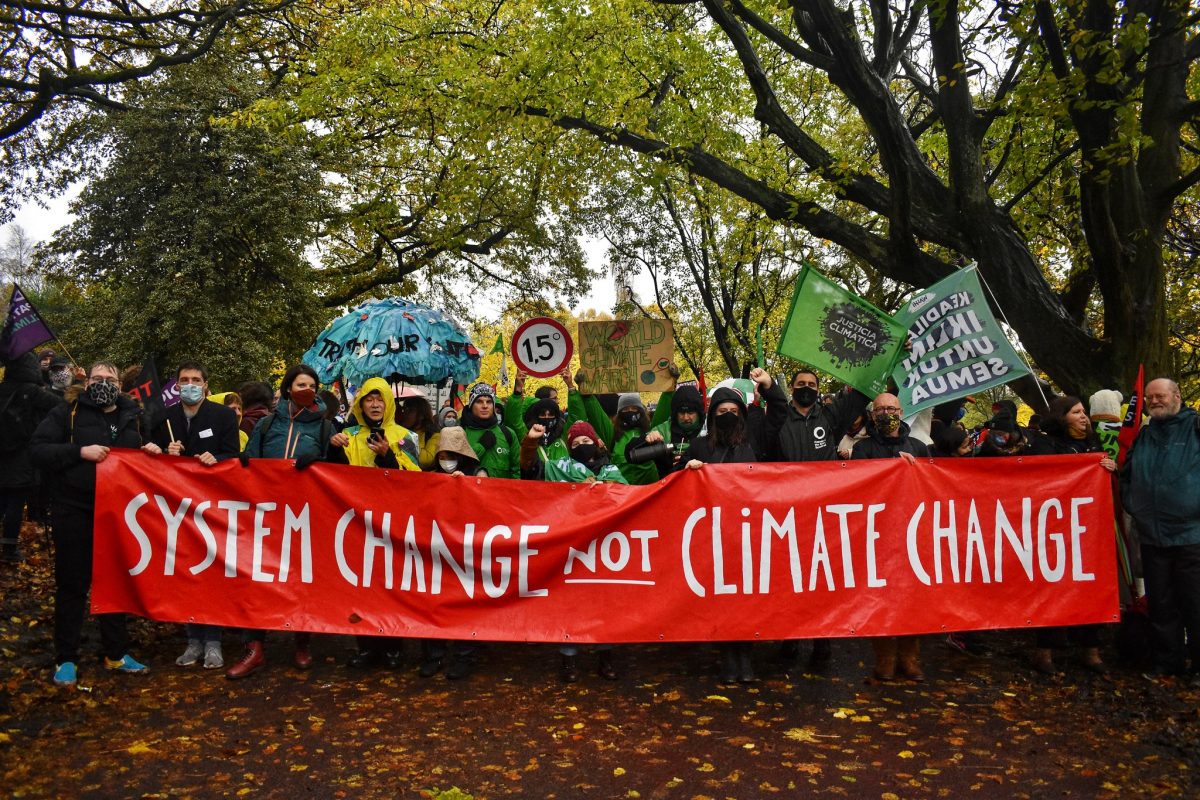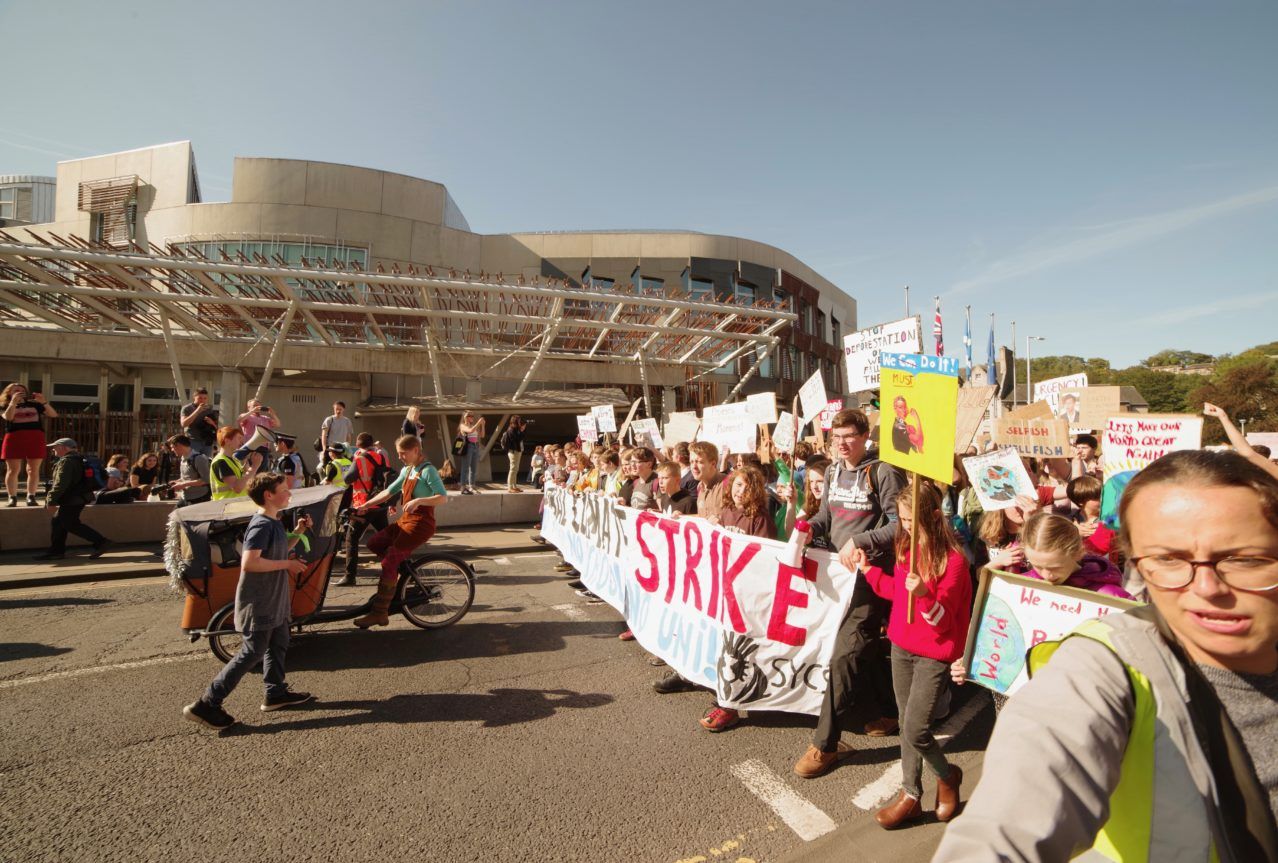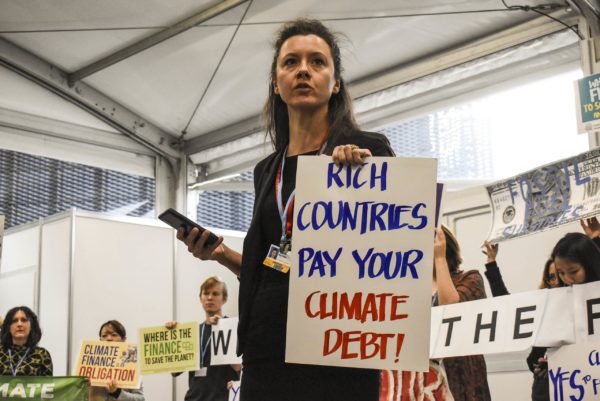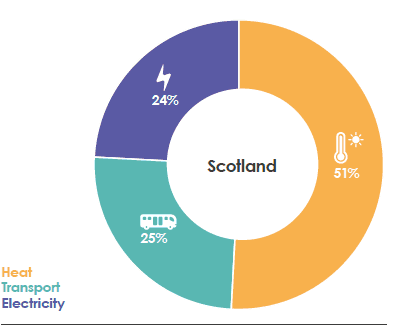
What are Scotland’s current climate targets, and are they enough?
What is Scotland doing on climate change?
The Scottish Government’s current climate targets include net zero emissions by 2045. Net zero means that the total climate emissions produced within Scotland (e.g. by burning fossil fuels) are equivalent to those drawn down out of the atmosphere by trees, peatland and nature. This target is five years earlier than the rest of the UK.
And last year following huge public pressure and Scotland’s largest ever climate protests, Parliament upped their short-term ambition by voting for an amendment to the Climate Bill, promising to cut emissions by 75% by 2030 (that’s a 75% cut compared to what Scotland’s emissions were in 1990).
Furthermore, meeting the targets is supposed to not rely on controversial measures like carbon credits, so the reductions will have to come from Scotland itself, rather than the government paying other countries to reduce emissions.

Are Scotland’s climate targets enough?
Scotland’s targets are ambitious compared to most other nations, yet even they are not in line with the scale of action required. To keep the planet from hitting the crucial 2°C rise in temperature since pre-industrial times, there needs to be zero carbon emissions globally by 2050. To stay below 1.5°C we need to try even harder.
For there to be any chance of this happening, developed nations need to be far more ambitious. Delaying climate targets to 2045 will simply pass the buck to the next generation.
As a youth climate striker said last year:
“It is no good being the fastest snail.”
What should Scotland be doing to cut climate emissions?
To better understand Scotland’s relationship with global emissions, Friends of the Earth Scotland commissioned a report from Prof Kevin Anderson of the Tyndall Centre for climate research. The report found that, if Scotland continues on the road we’re on, we would have used up all our fair share of global emissions by 2030. To ensure this doesn’t happen, we have been calling for the 2030 target to be a minimum of 86%.
It’s a fact that many of the countries expected to suffer the brunt of climate change are the world’s poorest nations, those least responsible for causing the problem. As Scotland was instrumental in the Industrial Revolution and is a historical big polluter, it has a moral responsibility to spearhead the green revolution (read more about the climate fair shares approach here). Blessed with an abundance of renewable resources, we are perfectly placed to do so.
With the UN Climate Summit (COP26) in Glasgow this year, and with climate change now high on the public and news agenda, the eyes of the world will be watching Scotland’s progress on climate targets. Done well, and Scotland could be at the forefront of historic global change. It is now up to the Government to deliver.

Has Scotland made progress on renewable energy?
There is a long-standing pledge to have 100% of electricity from renewables by 2020. This target will be a few years late, due to delays in building offshore wind schemes. In 2018, 74% of the electricity used in Scotland came from renewables.
However electricity only accounts for a quarter of our total energy needs. Another quarter goes to things like powering transport, and a whopping 51% towards heating our homes and businesses.
Final Energy Consumption – split by end use sector, 2015

On heat, the Scottish Government’s target was to deliver 11% of non-electrical heat demand from renewable sources by 2020. However, by the start of 2019 they had only delivered 6.3%, up from 5.5% in 2017. So more transformative action is clearly needed.
Agriculture and land use is another sector the government needs to address. It produces the biggest pollution share after transport, and accounts for 24% of our total emissions. Concrete action to bring down emissions in this area has been sorely lacking.
By Mike Edmonstone, Communications Volunteer. Follow him on Twitter
